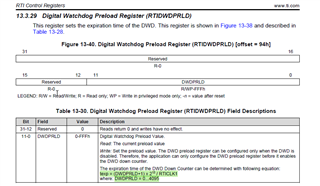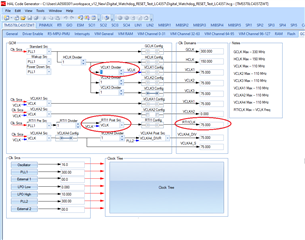Other Parts Discussed in Thread: HALCOGEN
Dear All.
I'm trying to make a watchdog using the TMS570LS3137ZWT chip.
If you look at Halcogen's "Help Topics", there is an example source for implementing dwwd in "Examples".
So, I set up Halcogen according to the example, created a task, and tested it.
However, when the watchdog timer expired, it was not called inside rtiNotification.
What I want to do is,
When running an infinite loop like while(1) inside a task, the watchdog gets caught and tries to reset the hardware.
Could you tell me what to do?




